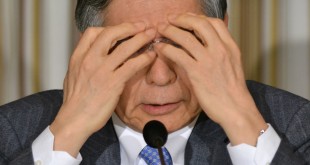I have noticed two things about human nature and the markets, after what I saw in the past couple of weeks throughout the twitterverse, Stocktwits, Facebook and on individual blogs, and I want to talk about that.
Charts and ideas are almost secondary to the process of trading and investing. HOW many ideas did you get that blew up in your face in the past year or decade? How many signals did you take or ignore? Please consider what I have to share in the next three paragraphs.
First, people crave certainty, presented in a wonderfully written exposition with a great deal of detailed and sweet sounding precision. If a “great argument” to do something, is however offered while disregarding prices, it is incomplete commentary for trading purposes. Even if a trading idea is filled with great arguments, it’s still dangerous noise, if it is thrown at you without a risk management framework, without an in advance plan of attack. Every trading thesis is incomplete and prediction is basically impossible in terms of timing and actual valuations. Price targets are useless in aggregate without plans for exits. Entries are useless without a plan for “WHAT IF”.What if the plan goes wrong and that punch in the face you just got was not the one you expected after weeks of roadwork and Mickey training you to running like greased lightning? What was your trade size? What is your current exposure to other similar ideas? Are you already loaded up on a ton of trades and if so, how many of them have locked in profits? How liquid is that position? Will bid ask spread out wider than a Kardashian’s…media deals? So many questions may have gone unanswered, except for the isolated and fanatically precise sounding narrative behind a trade. Beware FALSE PRECISION.
Second, I notice the other thing about humanity and the markets are that we are heavily invested in the past. Many are hardwired, with their biases imprinted by some moment of glory or gloom in their trading/investing lives, like baby ducks seeing momma for the first time. Many have a knee-jerk reaction to the present thanks to the past. That past experience is either based a brief moment of victory a trader hopes to repeat, or regret filled phantom pain they fear revisiting. Imprisoned by the past, some dispute any possibility for change (for the better or worse) as impossible. Since it happened once before, many are anchored to the past as an imprint for the future with 100% certainty. (“It can’t possibly go any lower” or “It can’t possible go any higher”.) Here, traders are blind to many concepts, including: the permanent impairment of value, a temporary but frightening drawdown ripe for a true turnaround upwards, or that the current level of animal spirits (high or low) and the current pricing (optimistic or pessimistic) is never going to change. Again, risk management is useful for risk taking, without the need to bet the farm or one’s ego. You can indeed challenge a status quo, conventional “truth” without ending your trading career. YOUR PAST does NOT DEFINE your DESTINY.
Third and last paragraph on this topic. It is better to be roughly right than precisely wrong. And it is more important to control how, and how much, you trade than what you trade, or at what prices you enter, or what your target price shall be. I think in the long run all systems have losing streaks. I don’t care how much back-testing is done. There isn’t enough raw data to create a sample size to protect you from an asteroid headed your way. In fact, just this weekend, one small asteroid came streaking past earth, at a level 2/3s of the elevation that satellites orbit at, and we have been more aware about asteroids thanks to Bruce Willis 🙂 Good thing it passed us by, and that it was relatively small. Still, with “F=MA” and an asteroid hitting you, assuming it didn’t break up on reentry, it would be very painful but that is for another blog to cover. I think individual ideas are great but they are useless without a focus on an overall plan. What’s your size? What’s your time frame? What’s your methodology or do you not really have one in place yet? My ideas, your money. My time frame, your expectations. Think about the mismatch problems here. Think about correlation, are you trading 3, 4,5, or 100 different ideas or are they all really just one big freaking, leveraged correlated play? HOW YOU TRADE is MORE IMPORTANT than WHAT or even WHEN you trade.
Since, I was generously allowed to join iBankCoin, I have presented a few ideas, with a lot of humor and I’m happy with them, my methodology leaves me comfortable with a reasonable risk/reward probability and my risks per execution are small enough to not hurt but large enough to matter. I know my time frame, I have my methodology and most of all I have a respect for sizing and the enormous respect for the possibility an asteroid to come crashing through markets and sectors while I’m asleep. Just look at what goes on in our messed up world constantly. If you don’t think about the cost and consequences of your choices within the context of a greater process of planning then you are in trouble.
Additional thoughts regarding risk management: On a mechanical, process driven basis, please consider risking on average about 1/4 to 1% per trade or something like that, and as the profits come in, pay for more proceeds with those winnings if you plan to pyramid. (I apologize to all experienced traders for the arrogance of giving unsolicited advice on execution techniques like sizing. I hope older and wiser traders will understand I mean well.) As for trading “like a pig”, ala Druckenmiller’s anecdote about Soros’s admonition to not pass on a trade that has “conviction”, that is for those with experience, a bankroll and sufficient resources, both intellectual and financial, to determine a specific idea is worthy for trading “large”. For the love of all that is good, if your intent is to be decent professional trader, do not think about “doubling down” in the context of rescuing a trade. What are you trying to prove? Don’t tell me about averaging down, for if you are indeed averaging in pieces to build a position, then you would NOT telling me or anyone else about your entry price, since that doesn’t matter. But if that actual entry did matter then obviously you were not being 100% honest since you might have been hoping that was the “bottom” in a long or a “top” in a short.
About ALL about my posts: My ideas are all within a context of weekly price bars and slow as hell price trends.
This post helps to describe part of my biases about trading. If you don’t like it, that’s ok. I honestly don’t think anyone is going to read this but I’ve been bursting to talk about this after seeing a lot of the trader talk online in the past couple of weeks.
Tickers come and go. Markets come and go. We MUST remain.
If you enjoy the content at iBankCoin, please follow us on Twitter






This is very long – I will need to take an intermission to get a use the bathroom and get a snack.
brb
bring me back some nachos, don’t forget the peppers.
Patience and controlling one’s emotions are the most important components of successful trading. Also, one must distinguish luck from skill. Many of my most profitable trades have been generated by some unforeseen circumstances like a buyout or analyst upgrade nonsense. When I evaluate my performance I separate out the luck from skill. Often it’s not a comforting analysis.
I agree with this. There is an “inner game” which must be mastered. Regardless of the methodology, the one practiced must be consonant with the psyche of the practitioner. This requires the honesty of self-knowledge. And yes, I have been “lucky” and managed to capture gains from indeed what was a fluctuation. We cannot count upon that to make our bread and butter and we cannot control such good fortune but we can control our process (which includes, as you rightly pointed out, emotional states.) Paul Tudor Jones discussed this issue of luck being a factor I believe and so has Howard Marks.